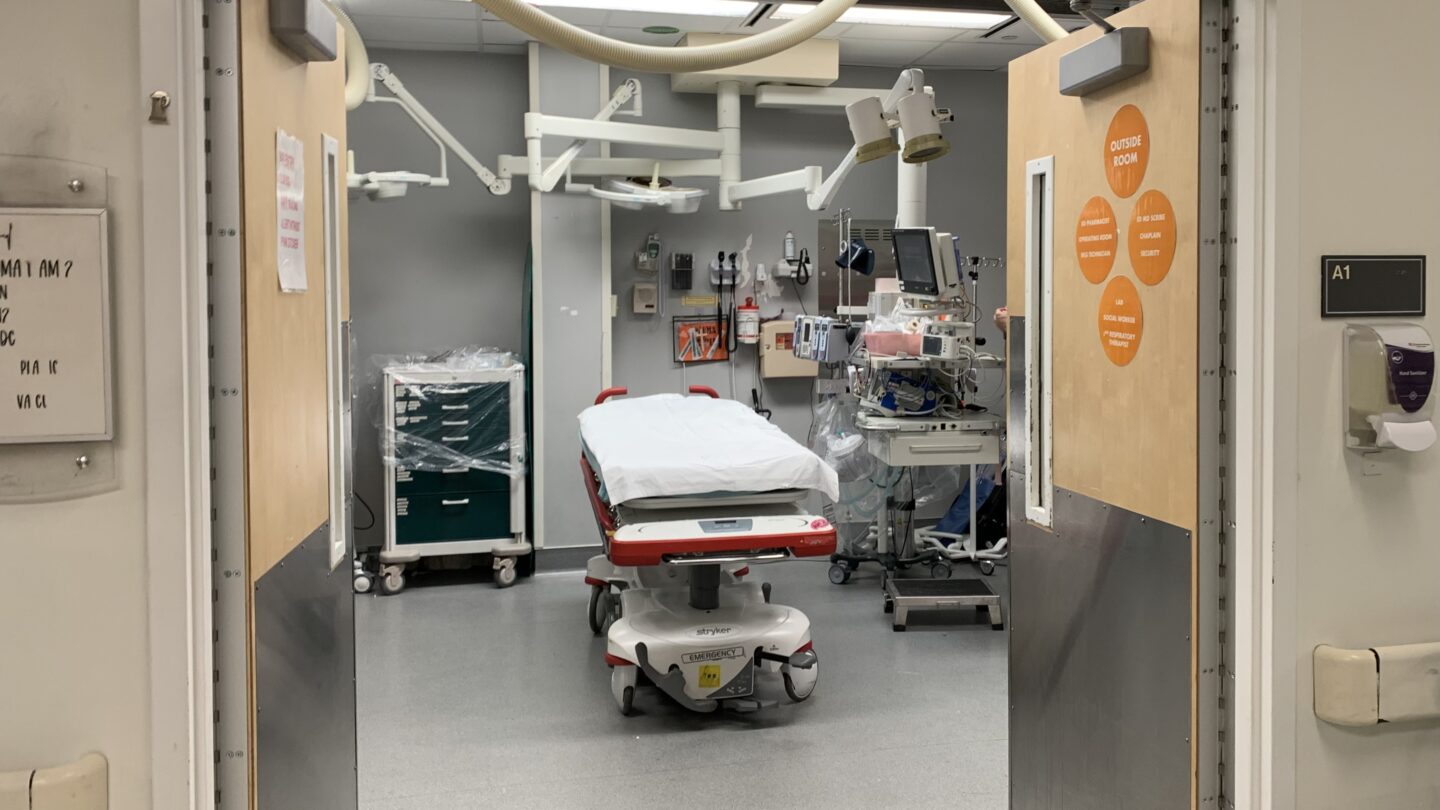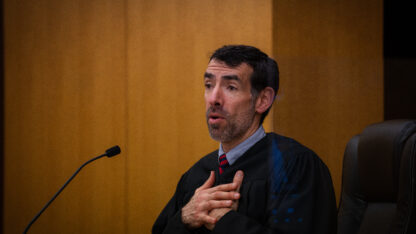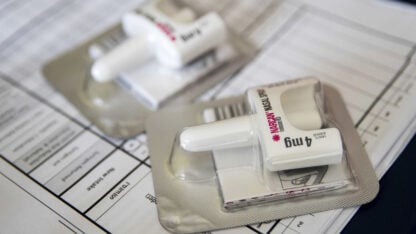A Northeast Georgia hospital program is trying a different approach to help people struggling with addiction. It connects patients with specialized help right in the ER instead of just treating their symptoms and releasing them.
The program’s results may show promise in helping the state tackle its opioid and overdose epidemic.
For Marie, it started with pills.
“I had a medical condition at a young age, so I was prescribed medicine for it,” said the Gainesville 46-year old who is using just her first name in this story to protect her privacy.
Her addiction to opioids eventually led her to heroin.
“Every time I would try to quit,” she said. “I would get so sick that I just couldn’t get past it.”
Marie said she didn’t know where to turn. Finally, she told her family what was going on.
Her sister took her to Northeast Georgia Medical Center’s emergency department.
“I just went there just praying that they could help me,” she said.
And they did. A hospital mental health clinician assessed her and connected her with a peer recovery coach — a first responder of sorts who’s experienced addiction and long-term recovery themselves.
Her coach supported her through her hospital stay, detox and an outpatient treatment program.
It’s all part of the Northeast Georgia Health System’s effort to transform its emergency department care for patients who have survived an overdose or need help for addiction.
And it’s the first in the state to try this approach.
It was championed at the hospital by emergency physician and addiction medicine specialist Dr. Alison Ruch.
“So we train our nursing, our staff to talk about these things with the patient,” Ruch said. “A lot of the literature started to show that it was something that was part of our scope of practice to engage patients that have issues with substance-use disorder and initiate the treatment pathway and recovery here in the ER.”
The ER connects patients with peer recovery coaches like Dawn Mullinax.
“The reason they are my peer is because I have recovered and [overcome] a substance-use disorder,” she said. “So that’s what helps us to make the connection when we enter into the emergency department.”
Mullinax is a program manager with the Georgia Council for Recovery. She said her experience has taught her that peer support is critical for patients with substance-use issues.
“The peer world didn’t stigmatize me. They didn’t judge me. So, I want to pay my community back by working in this workforce and advocating that people do get well.”
When the emergency department calls about a new patient, she dispatches a coach trained by her group right to the patient’s bedside.
Mullinax said most patients want to talk.
“The impact that that has on them, maybe this isn’t their first time coming to the hospital to get help for substance-use disorder or whatever brought them in,” Mullinax said. “But this may be the first time that someone has come in there and said, I understand the shame and the feeling you must have right now, but it’s okay to talk about it and get help for it.”
Coaches try to gauge patients’ needs and desire for treatment. They share information about recovery programs.
And work with outside community organizations to get patients other services, including detox, inpatient or outpatient drug treatment, even help signing up for medical insurance.
Coaches also stay in touch with patients long after they are discharged from the hospital.
“I speak to 100 of them monthly, and I have plenty of people who reach out to me just to tell me how they’re doing, too,” peer recovery coach Jodie Waycaster said. “The program really reaches a lot of rural communities that don’t have access to a lot of other recovery resources.”
Karla Lee, a referral coordinator for the program, has worked at Northeast Georgia Medical Center for two decades.
A growing number of the hospital’s patients are seeking help for mental health issues, she said. And for drug overdoses, especially from the highly potent synthetic opioid fentanyl.
“We used to see a lot of people that had fentanyl patches. Now it’s coming in different forms that they don’t realize that they’re using,” she said.
The increase is statewide.
The most recent Department of Public Health data, which is two years old, shows ER visits and hospitalizations for drug overdoses were up by 10% between 2019 and 2021.
But emergency departments are not traditionally designed to help patients in active addiction, Lee said.
“The emergency department is, for lack of a better word, is a band-aid. You know, it’s a crisis stabilization.”
RTI International health economist and Distinguished Fellow in behavioral health financing and quality measurement Tami Mark said this Northeast Georgia approach has been uncommon at most emergency departments around the United States.
“Typically the staff haven’t been trained in addiction. They don’t know how to treat it, really,” she said. “They don’t have the resources to connect people to care.”
That’s starting to change, she said, as hospital systems around the country look for new solutions to the continuing overdose crisis.
“Now there’s a growing interest in them because of the opioid epidemic and the increase in funding that the federal government has made available for those kinds of interventions,” Mark said.
Years of evidence show programs like the one in Northeast Georgia can effectively treat opioid-use disorder, reduce patients’ risk of overdosing again and help decrease the number of emergency department visits.
Marie said a year after her ER visit, she still talks to her coach all the time.
“She has become not only like a peer recovery coach for me, but a friend,” she said.
She said her coach helps keep her accountable. Marie said she feels happier with her life in recovery.
“I go to work every day, I pay my bills, I pay my taxes. If you saw me in the street, you would have no idea what I have been through,” Marie said. “You know, it just makes me normal. And that’s what I need.”
So far, in the roughly five years since Northeast Georgia Health System started its program, peer recovery coaches have seen around 8,000 patients like Marie.
Hospital officials are continuing to collect data on the program’s impact, but say it’s already helping to cut the number of “repeat” patients.
Program organizers are working on plans to expand to include more community-based services.
And they hope other Georgia hospitals consider trying a similar model.









